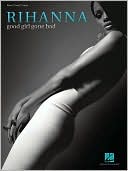| |
Biography
The best-selling female performer of the 1990s, Mariah Carey rose to superstardom on the strength of her stunning five-octave voice. An elastic talent who moved easily from glossy ballads to hip-hop-inspired dance-pop, she earned frequent comparison to rivals Whitney Houston and Celine Dion, but did them both one better by composing all of her own material. Born in Long Island, NY, on March 27, 1970, Carey moved to New York City at the age of 17 -- just one day after graduating high school -- to pursue a music career; there she befriended keyboardist Ben Margulies, with whom she began writing songs. Her big break came as a backing vocalist on a studio session with dance-pop singer Brenda K. Starr, who handed Carey's demo tape to Columbia Records head Tommy Mottola at a party. According to legend, Mottola listened to the tape in his limo while driving home that same evening, and was so immediately struck by Carey's talent that he doubled back to the party to track her down.
After signing to Columbia, Carey entered the studio to begin work on her 1990 self-titled debut LP. The heavily promoted album was a chart-topping smash, launching no less than four number one singles: "Vision of Love," "Love Takes Time," "Someday," and "I Don't Wanna Cry." Her overnight success earned Grammy awards as Best New Artist and Best Female Vocalist, and expectations were high for Carey's follow-up, 1991's Emotions. The album did not disappoint, as the title track reached number one -- a record fifth consecutive chart-topper -- while both "Can't Let Go" and "Make It Happen" landed in the Top Five. Carey's next release was 1992's MTV Unplugged EP, which generated a number one cover of the Jackson 5's "I'll Be There." Featured on the track was backup singer Trey Lorenz, whose appearance immediately helped him land a recording contract of his own.
In June 1993, Carey wed Mottola -- some two decades her senior -- in a headline-grabbing ceremony; months later, she released her third full-length effort, Music Box, which became her best-selling record to date. Two more singles, "Dreamlover" and "Hero," reached the top spot on the charts. Carey's first tour followed and was widely panned by critics; undaunted, she resurfaced in 1994 with a holiday release titled Merry Christmas, scoring a seasonal smash with "All I Want for Christmas Is You." Released in 1995, Daydream reflected a new artistic maturity; the first single, "Fantasy," debuted at number one, making Carey the first female artist and just the second performer ever to accomplish the feat. The follow-up, "One Sweet Day" -- a collaboration with Boyz II Men -- repeated the trick, and remained lodged at the top of the charts for a record 16 weeks.
After separating from Mottola, Carey returned in 1997 with Butterfly, another staggering success and her most hip-hop-flavored recording to date. #1's -- a collection featuring her 13 previous chart-topping singles as well as "The Prince of Egypt (When You Believe)," a duet with Whitney Houston effectively pairing the two most successful female recording artists in pop history -- followed late the next year. With "Heartbreaker," the first single from her 1999 album Rainbow, Carey became the first artist to top the charts in each year of the 1990s; the record also pushed her ahead of the Beatles as the artist with the most cumulative weeks spent atop the Hot 100 singles chart.
However, the early 2000s weren't as kind to Carey. After signing an $80 million deal in 2001 with Virgin -- the biggest record contract ever -- she experienced a very public personal and professional meltdown that included rambling; suicidal messages on her website; an appearance on TRL where, clad only in a T-shirt, she handed out Popsicles to the audience; and last but not least, the poorly received movie Glitter and its attendant soundtrack (which was also her Virgin Records debut). Both the film and the album did poorly critically as well as commercially, with Glitter making just under $4 million in its total U.S. gross and the soundtrack struggling to make gold sales. Following these setbacks, Virgin and Carey parted ways early in 2002, with the label paying her $28 million. That spring, she found a new home with Island/Def Jam, where she set up her own label, MonarC Music. In December, she released her ninth album, Charmbracelet, which failed to become a success.
The Emancipation of Mimi, her most successful work in years, appeared in 2008. It climbed to multi-platinum status and earned Carey three Grammy awards -- Best Contemporary R&B Album and, for the single "We Belong Together," Best Female R&B Vocal Performance and Best R&B Song -- thus restoring her status as a megastar. Two weeks before the release of her subsequent album, April 2008's E=MC2, Carey scored her 18th number one hit with "Touch My Body," a feat that pushed her into second place (past Elvis, no less) among all artists with the most chart-topping singles. Although that hit song, along with the late April news that she married Nick Cannon, kept her in the spotlight that year, the remainder of the album's spinoffs weren't nearly as successful; only "Bye Bye" managed to scrape the Top 20 of the Billboard Hot 100. She went back to work fairly quickly, however, and Memoirs of an Imperfect Angel -- featuring collaborations with the-Dream, as well as a cover of Foreigner's "I Want to Know What Love Is" -- became her 12th studio album upon its September 2009 release.






